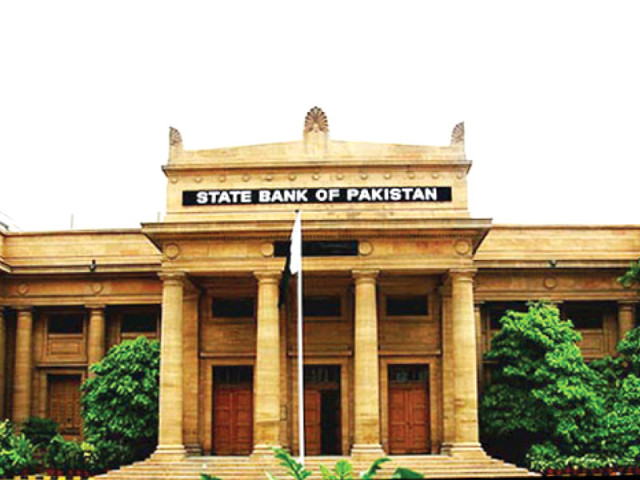Monetary circles: Can the SBP reduce the national debt?
Maybe the central bank can reduce government liabilities, but it probably should not.

It is the sort of monetary titbit that drives Austrian school economists insane: of the Rs12 trillion that the federal government owes in total public debt, about 11% of that is owed to the State Bank of Pakistan (SBP), an entity entirely owned and operated by the federal government itself.
Here is how it happens. When the government runs out of places to borrow money from, it simply asks the central bank to print money. Yes, you read that correctly: the finance ministry issues debt and the SBP buys it. But that is not where this madness ends.
The government actually pays interest on that debt, which forms the bulk of the SBP’s revenue. That revenue, in turn is used in small part to pay the bills at the central bank, but most of that is simply the bank’s profit, which it then pays back to the government as a dividend. In 2011, the interest paid by the government on its debts to the State Bank came to just over Rs200 billion, and about Rs181 billion was paid back to the government as a dividend.
So why do we bother with this charade? Why not simply wipe away the debt owed to the SBP completely? It would make very little in terms of a measurable impact on the government’s actual finances (it would pay less in interest, but then also lose the dividend income). But it would reduce the size of the national debt by about 11%. The debt-to-GDP ratio would go down from the current 58.2% to a more respectable-looking 51.6%.
Would there be any cost associated with this? Well, for starters, the folks at Ernst & Young (the firm that audits the State Bank’s accounts) would probably be very upset. But that hardly seems like a good reason not to do it.
Would it cause inflation? Yes, and no. The immediate consequence of such a wiping away of the debt would likely not cause inflation, since the government has already printed the money and spent it, meaning that it is already in circulation and the inflation it would have caused has already occurred.
The more medium-term consequence, of course, has nothing to do with current inflation. It has everything to do with future inflation. If the government can simply circumvent the law limiting its borrowing from the central bank by wiping away its debts, what is to stop the government from doing that over and over again? And what would stop the government from simply financing the entire budget deficit with such “borrowing” that never has to be repaid?
It would result in a government gone mad: the government would print an excess Rs1 trillion every year, and that number would keep getting higher. Remember that the last time the government did that, inflation hit shot past an annualised rate of 25% in August 2008.
Imagine living in a county where that sort of thing becomes normal. Inflation would not just hit 25% and then stay there. No, that would be too good to be true. Inflation would shoot well past that level and most likely hit what economists call hyperinflation: where prices double every few days.
No, as insane as it sounds for the government to owe money to itself, the alternative to this monetary fantasy is actually far worse. It will wipe away the savings of every person in the country in a matter of weeks and then proceed to eviscerate the entire economy. It is much more preferable to simply have the money circulate between the finance ministry and the SBP.
Published in The Express Tribune, September 9th, 2012.


















COMMENTS
Comments are moderated and generally will be posted if they are on-topic and not abusive.
For more information, please see our Comments FAQ